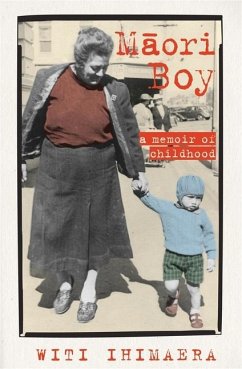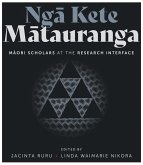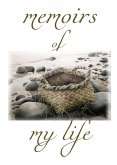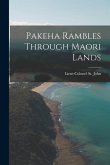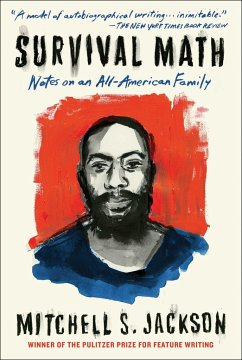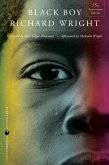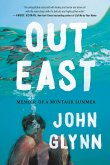- Broschiertes Buch
- Merkliste
- Auf die Merkliste
- Bewerten Bewerten
- Teilen
- Produkt teilen
- Produkterinnerung
- Produkterinnerung
"This is the first volume of Witi Ihimaera's enthralling memoir, packed with stories of the formative years of this much-loved writer."--Publisher information.
Andere Kunden interessierten sich auch für
![Nga Kete Matauranga: Maori Scholars at the Research Interface Nga Kete Matauranga: Maori Scholars at the Research Interface]() Jacinta RuruNga Kete Matauranga: Maori Scholars at the Research Interface44,99 €
Jacinta RuruNga Kete Matauranga: Maori Scholars at the Research Interface44,99 €![Memoirs of my life Memoirs of my life]() Kiri Atawhai DewesMemoirs of my life26,99 €
Kiri Atawhai DewesMemoirs of my life26,99 €![Pakeha Rambles Through Maori Lands Pakeha Rambles Through Maori Lands]() Lieut-Colonel St JohnPakeha Rambles Through Maori Lands23,99 €
Lieut-Colonel St JohnPakeha Rambles Through Maori Lands23,99 €![Survival Math: Notes on an All-American Family Survival Math: Notes on an All-American Family]() Mitchell JacksonSurvival Math: Notes on an All-American Family15,99 €
Mitchell JacksonSurvival Math: Notes on an All-American Family15,99 €![Black Boy Black Boy]() Richard WrightBlack Boy16,99 €
Richard WrightBlack Boy16,99 €![Breakfast at Sally's Breakfast at Sally's]() Richard LeMieuxBreakfast at Sally's13,99 €
Richard LeMieuxBreakfast at Sally's13,99 €![Out East Out East]() John GlynnOut East15,99 €
John GlynnOut East15,99 €-
-
-
"This is the first volume of Witi Ihimaera's enthralling memoir, packed with stories of the formative years of this much-loved writer."--Publisher information.
Produktdetails
- Produktdetails
- Verlag: Penguin Random House New Zealand Limited
- None edition
- Seitenzahl: 384
- Erscheinungstermin: 7. November 2014
- Englisch
- Abmessung: 231mm x 152mm x 33mm
- Gewicht: 567g
- ISBN-13: 9781869797263
- ISBN-10: 1869797264
- Artikelnr.: 60070584
- Verlag: Penguin Random House New Zealand Limited
- None edition
- Seitenzahl: 384
- Erscheinungstermin: 7. November 2014
- Englisch
- Abmessung: 231mm x 152mm x 33mm
- Gewicht: 567g
- ISBN-13: 9781869797263
- ISBN-10: 1869797264
- Artikelnr.: 60070584
Witi Ihimaera was the first Maori to publish both a book of short stories and a novel, and since then has published many notable novels and collections of short stories. Described by Metro magazine as 'Part oracle, part memoralist, ' and 'an inspired voice, weaving many stories together', Ihimaera has also written for stage and screen, edited books on the arts and culture, as well as published various works for children. His best-known novel is The Whale Rider, which was made into a hugely, internationally successful film in 2002. His novel Nights in the Garden of Spain was also made into a feature film, and was distributed internationally under the name of Kawa. The feature film White Lies was based on his novella Medicine Woman. And his novel Bulibasha, King of the Gypsies inspired the 2016 feature film Mahana. His first book, Pounamu, Pounamu, has not been out of print in the 40 years since publication. He has also had careers in diplomacy, teaching, theatre, opera, film and television. In 1993 Ihimaera spent a year in France on the Katherine Mansfield Fellowship. He has received numerous awards, including the Wattie Book of the Year Award and the Montana Book Award, the inaugural Star of Oceania Award, University of Hawaii 2009, a laureate award from the New Zealand Arts Foundation 2009, the Toi Maori Maui Tiketike Award 2011, and the Premio Ostana International Award, presented to him in Italy 2010. In 2004 he became a Distinguished Companion of the Order of New Zealand (the equivalent of a knighthood). Witi Ihimaera has said that he considers 'the world I'm in as being Maori, not European' and that he writes from this perspective. While much of his fiction is based on fact, it is not strictly autobiographical but is an imaginative recreation of places, people and circumstances. For a period of about 10 years, though, he stopped publishing, feeling that his attempts to capture the emotional landscape of Maori were being perceived as the 'definitive portrayal' of Maoridom. This was from the mid-1970s when there was a resurgence of Maori activism. Receiving the premiere Maori arts award Te Tohutiketike a Te Waka Toi, Ihimaera said, 'To be given Maoridom's highest cultural award, well, it's recognition of the iwi. Without them, I would have nothing to write about and there would be no Ihimaera. So this award is for all those ancestors who have made us all the people we are. It is also for the generations to come, to show them that even when you aren't looking, destiny has a job for you to do.' Ihimaera is a respected commentator on Maori, Pacific and indigenous peoples' affairs, and has been instrumental in ensuring Maori art and literature is supported.

